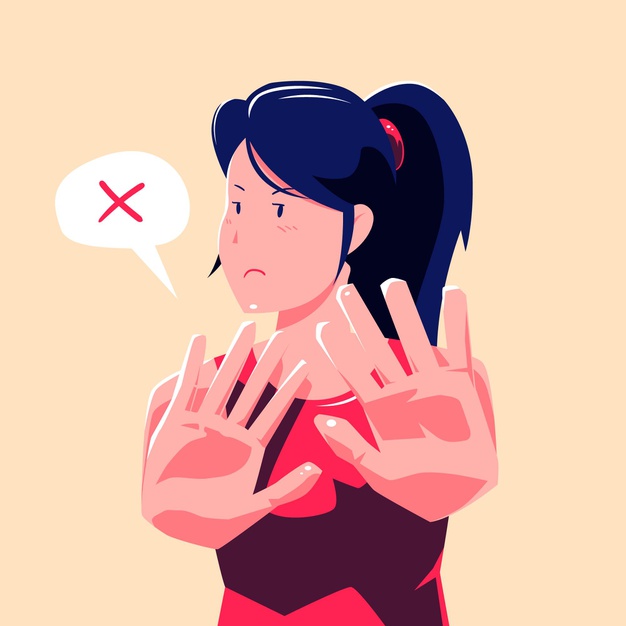
OR
Opinion
Stop Downplaying Street Harassment
Published On: December 31, 2021 08:45 AM NPT By: Ameesha Rayamajhi


Ameesha Rayamajhi
Ameesha Rayamajhi is a second-year student at National Academy of Legal Studies and Research (NALSAR) University of Law, Hyderabadnews@myrepublica.com
The narrative that women should feel validated that they are attractive if they get catcalled should be eradicated. Catcalling is sexual harassment.
I often walk through the streets of Kathmandu alone. As a young twenty-something girl, that inevitably means getting catcalled. Random men frequently whistle and pass unwarranted comments, groups sing vulgar songs, and bikers needlessly honk at me. Today, catcalling is rampant. However, if catcalling is so normalized that women are no longer even surprised when made victims, have we not failed as a society?
Catcalling, or street harassment, is the act of shouting or implying sexual comments in public spaces. It entails uninvited acts such as whistling, honking, or even flashing and showing vulgar gestures. Cornell International Survey on Street Harassment, a cross-cultural analysis of over 42 countries including Nepal, says that globally a majority of women are victims of street harassment before puberty. Around 78% of Nepali women have experienced eve-teasing before the age of 17 years and 52% before 15 years. Statistics thus indicate that catcalling is gendered and the primary victims are young women.
Street harassment is the objectification of women. Girls, as young as school-going students, are routinely sexualised in public spheres. The comments and songs are unwanted sexual advances fantasizing about the bodies of the victims. Catcalling fundamentally raises the question of bodily autonomy and ownership of one’s sexuality in public spheres. The downplaying of catcalling entitles the predators to our bodies, making us wonder if we have ever wholly-owned our bodies. Thus, the societal focus should be on why the harassers feel entitled to project onto women. When the burden of catcalling is shifted to the victims, catcalling becomes rape culture.
Victim-blaming forms the crux of street harassment. When a woman is catcalled, the questions raised are what she was wearing, why she was out alone or so late. The same attitude is shared in cases of harassment of a higher degree of severity like rape and sexual abuse. Through catcalling, which is a more frequent and day-to-day form of harassment, the culture of victim-blaming is reinforced. So, downplaying catcalling and shifting the burden on the victims leads to more severe forms of sexual harassment. Further, the Cornell Survey showed that over half of the women changed their clothing, route of travel, timing of exiting an event, or even avoided the town or an area after being catcalled in Nepal. This shows that by internalizing victim-blaming, women are also denied the right to unrestricted access to public spaces.
Similarly, when a woman is catcalled, she is told to ignore that she was harassed and “let it go”. The accountability shifts from the predators to the victims who are expected to react in a certain way. Catcalling is often justified with the phrase “boys will be boys”. The gender-dynamic of street harassment is almost always a group of men catcalling a woman walking alone on a street, and never vice versa. Street harassment is reflective of how gender norms have constructed masculinity. Predatory men catcall because they believe that women want their sexual advances and they should be the ones initiating them. Women, on the other hand, are expected to be submissive, docile, and tolerant vessels of sexual violence.
More importantly, women also ignore catcalling because of the violence that could unfold. If a victim retaliates instead of tolerating the harassment, there is a decent possibility that the predator may physically attack her. Women are often catcalled when they are alone or by a group, so this fear is valid. Also, the fear shows that catcalling is about power. Men catcall because they can simply do so and get away unscathed. So, when the woman rejects them, the predators often swear at, ugly-shame, and degrade her. This is how catcalling reinforces the power dynamics of the patriarchy.
Since the victims are afraid, catcalling can never be synonymous with admiring or complimenting a woman. Any reasonable person walking down the streets minding their own business is not fishing for a compliment anyway, although harmless. The narrative that women should feel validated that they are attractive if they get catcalled should be eradicated. The Cornell Survey shows that a negligent amount of Nepali women find catcalling secretly flattering. When young girls are catcalled, society should not justify it as only natural because she is conventionally pretty. Moreover, those who are not harassed, should not be conditioned into wanting to be catcalled as children because it is an external index of their attractiveness. Catcalling is sexual harassment. Terming street harassment as catcalling or eve-teasing perhaps even downplays the gravity of the violation of women’s bodies.
If you ever find yourself angry and powerless after being harassed with eve-teasing on the street, you have a few options. You can retaliate by non-violently confronting the predators if you are surrounded by people, given you feel safe as well as confident. You can also document the act and discreetly film it and report it later. If the law enforcement refuses to register the report, which is highly likely given how street harassment is downplayed, you can still share your stories on social media to amplify the gravity of street harassment. But if you feel scared or unsafe, you can refuse to burden yourself with retaliation and choose to validly ignore it. Lastly, you can also subtly vent your rage by coldly staring into the predator’s soul.
However, the onus of street harassment should not be on the victims. The perspective of street harassment as innocuous should be changed and catcalling should be recognized as a form of sexual violence against women.
Therefore, the guaranteed method of avoiding catcalling: if you are a man, do not catcall.
(The author is a second-year law and social science student at NALSAR University of Law, India.)
You May Like This

NC leader calls for proper action against House Speaker Mahara
KATHMANDU, Oct 2: Nepali Congress leader Prakash Man Singh has called for proper action against Parliament Speaker Krishna Bahadur Mahara... Read More...

Theatre artists admit to sexual harassment accusation
KATHMANDU, May 1: Two of the three theatre artists who were accused of sexually harassing their female co-workers have admitted to... Read More...

Sexual harassment complaints strain human rights agencies
HARTFORD, Sept 4: A wave of sexual harassment complaints that accompanied the #MeToo movement is straining many of the state... Read More...




Just In
- Navigating the Digital Diplomacy Divide: Balancing Tradition and Technology in Global Relations
- Youth attempts suicide amid police torture over Facebook comments against home minister
- Time to declare EVMs’ end
- World Malaria Day: Foreign returnees more susceptible to the vector-borne disease
- MoEST seeks EC’s help in identifying teachers linked to political parties
- 70 community and national forests affected by fire in Parbat till Wednesday
- NEPSE loses 3.24 points, while daily turnover inclines to Rs 2.36 billion
- Pak Embassy awards scholarships to 180 Nepali students














Leave A Comment